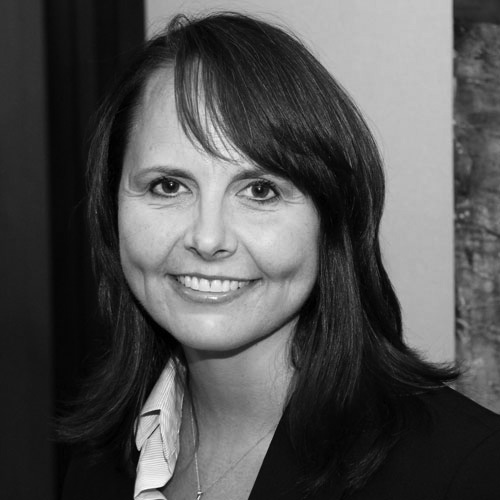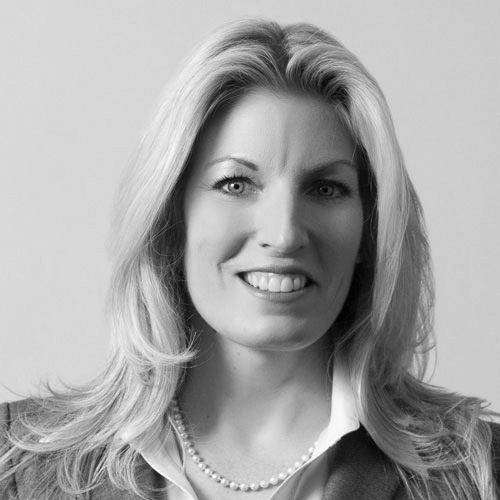Some people can’t get enough of big challenges. They’re always chasing the rush that comes from taking a leap into a fledgling venture, or pushing head-on in a brand new direction for the business.
Hillary Smith is among these go-getting people. She’s relied on her stellar legal instincts and experience to guide her through exciting changes in her twenty-year career. Her involvement in numerous successful startups, acquisitions, and mergers has proven invaluable in her current role as general counsel at SuccessFactors.
Hillary Smith shares her advice on how to succeed as a general counsel
Tip 1: Figure out what you don’t know, and find good advice from experts in that area. Don’t beat yourself up. It’s all a journey.
Tip 2: Progress doesn’t get us anywhere if we don’t solve problems. Our emphasis should be on results more than the process of our daily work—though not ever at the expense of integrity.
Tip 3: Sometimes we overthink and overanalyze when we should let go and follow our instincts. Learn to trust your gut.
SuccessFactors provides a cloud-based alternative to on-premise human resources software for many companies in a variety of industries all over the world. After SAP acquired the company in 2011, SuccessFactors began merging its work, culture, and startup spirit with the German giant in mobile and analytic solutions. Fortunately, providing guidance during this extended new beginning is just one of the many things that Hillary Smith does best.
SuccessFactors offers an alternative to on-premise software. What’s the benefit of using cloud-based software for something like human resources?
Hillary Smith: Our customers don’t have to worry about the technical complexity of maintaining a data center, and the cost of cloud-based software is significantly less than on-premise software. It essentially uses templates and is less customizable, but it’s an efficient and organized way to store a huge amount of information.
It sounds like it’s much simpler.
Smith: Yes, but it’s still complex. If you’re an employer with 100,000 employees, you’ll have thousands of different software applications, and they all have to be connected, which can be cumbersome. But as cloud continues to develop and evolve, implementation gets easier and easier.
You have some impressive experience. What drew you to in-house work in the first place?
Smith: After law school, I did a federal courtship in New York, and then went to a large law firm to work in litigation for a few years. But the problem with litigation is that you work with a company on one very focused project for a short time, and when it’s over, it’s over. When the matter was resolved, I would move on to the next matter with another client. I always knew that I wanted to feel more a part of a company—part of its development and evolution.
How did you make the transition from litigation attorney to in-house lawyer?
Smith: I eventually took a position at DoubleClick, an early tech company that successfully survived the bubble. I was initially the deputy general counsel, but when my boss left, the board named me general counsel as her successor. After DoubleClick went private, I joined a small startup company started by former DoubleClick employees called Right Media, as its first in-house lawyer. Being at such an early stage startup was intense and exciting, with plenty of opportunities to think creatively.
Describe your current role as SuccessFactors’ general counsel.
Smith: You might say I have kind of a hybrid role. Prior to the acquisition by SAP, I managed all the legal affairs for SuccessFactors globally, including managing all of our subsidiaries, mergers and acquisitions, intellectual property, negotiating large partner deals, and large customer enterprise. I still serve in my role as general counsel for SuccessFactors, but also co-lead a small team within SAP that is a legal center of excellence for SAP’s public and private cloud-based solutions, as well as Ariba and SuccessFactors solutions. We support the largest and most complex of SAP’s cloud deals globally.
It sounds like you have a wide variety of work, which probably means you don’t have a standard day-to-day routine.
Smith: I remember when my boss at DoubleClick told me she was recommending me to be her successor, and I told her I wasn’t sure I wanted the job. Fortunately, it didn’t take me long to realize that the most fun thing about this job is that you never have a typical day. You start every morning by saying, “I have no idea what I’m going to encounter today.” There will always be something out of the blue that you’ve never dealt with before—even after practicing for twenty years.
That sounds both exciting and exhausting. It is probably important to be in a supportive company culture. What was SuccessFactors’ culture like before it was acquired by SAP?
Smith: SuccessFactors was the hardest working company I had ever been in. The passion and drive to succeed was incredibly intense. But it was also extremely collaborative. People took real ownership of the company’s issues as a whole, which was appropriate because issues are rarely relevant to only one department. A successful organization requires peers to effectively collaborate to get results, which SuccessFactors did well. To use a sports analogy, the emphasis was about reaching goals, not gaining yardage.
What about post-acquisition? How has SAP affected the culture?
Smith: It has definitely changed since we’ve been acquired, but not in a negative way. SAP has blended very nicely with the SuccessFactors culture. We brought cultural elements to SAP: cloud DNA, innovation, spirit, and a sense of simplicity, efficiency, and urgency that you often find in high-energy startups. But in exchange, SAP brought a maturity and incredible baseline of knowledge and resources to our culture. It has been great to merge the two companies.
So often we hear stories of the pitfalls of mergers and acquisitions. It’s encouraging to hear about such a successful one.
Smith: I think mergers so often fail because the acquirer tries to fit the new company into its own image. But that destroys the value of the purchase. SAP was uniquely humble in acknowledging its strengths and weaknesses. SAP knows how to do on-premise software better than any company in the world, but it had the corporate awareness to know it hadn’t yet cracked the code on cloud. Now there is a consistent theme from top leadership, fully embracing and adopting cloud and SuccessFactors. I’ve been very impressed with SAP’s ability to give its culture an opportunity to be infused with SuccessFactors’ culture.
What about your vision? How are you looking at the future?
Smith: I’m open to lots of possibilities—opportunities within SAP, maybe even outside the legal departments; maybe even another startup opportunity. My future is totally open right now. I have a great passion for all sorts of different things. I’ve always found that when I follow my gut, I end up in the right place.

